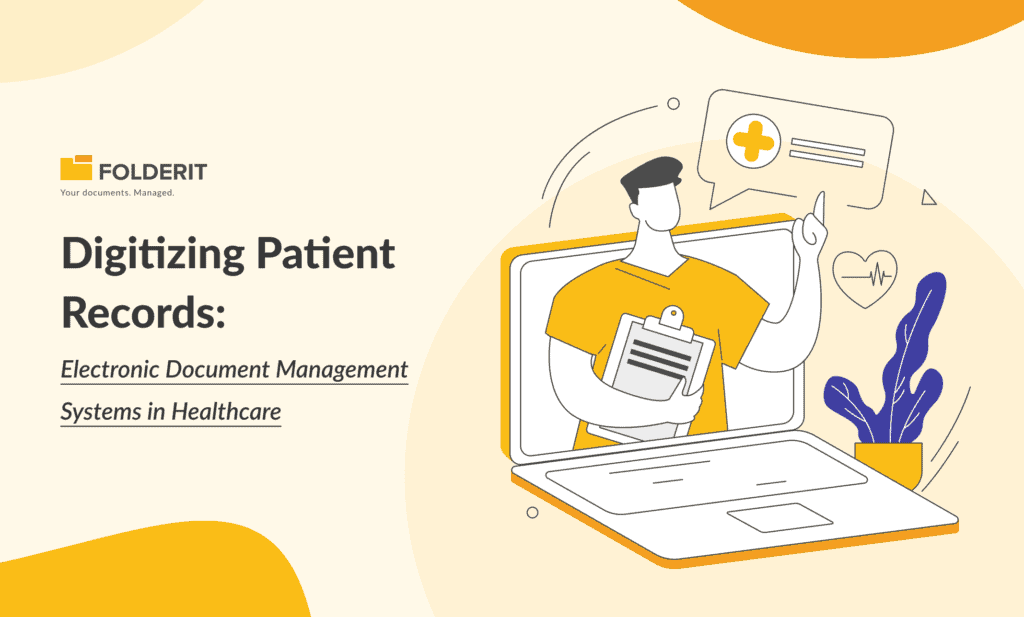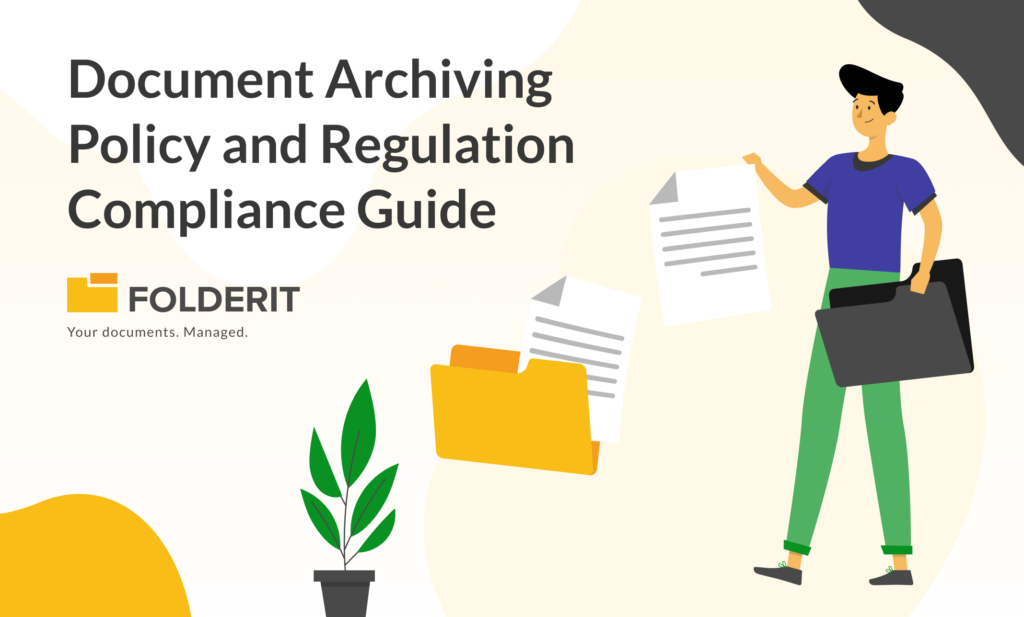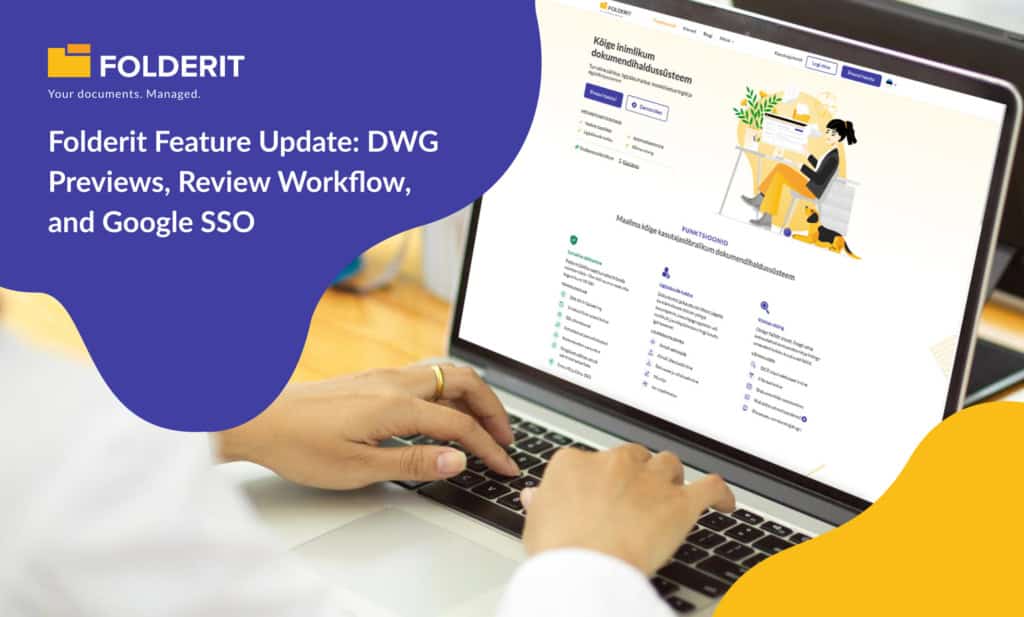In healthcare, the transition from traditional paper records to digital formats stands as a pivotal change, shaping the future of patient care. This shift, propelled by advancements in technology and driven by the need for efficiency and accuracy, brings Electronic Document and Record Management Systems (EDRMS) to the forefront. These systems are revolutionizing the way healthcare providers manage patient records, ensuring better patient care, enhanced security, and streamlined operations.
The Rise of Digital in Healthcare
The journey toward digitizing patient records is not merely a shift in data storage – it represents a fundamental change in the approach to healthcare management. Over the last decade, the adoption of Electronic Health Records (EHRs) has become nearly universal, influenced by factors like regulatory mandates, the pursuit of improved patient care, and the need for cost-effective healthcare solutions. This digital revolution, driven by initiatives like the HITECH Act of 2009, has been instrumental in pushing healthcare providers towards a more digital-centric approach.
The Role and Benefits of Electronic Document and Record Management Systems (EDRMS) in Healthcare
1. Enhanced Accessibility and Efficiency
Digital records, accessible through EDRMS like Folderit, offer a level of accessibility and efficiency that paper records cannot match. Healthcare professionals can access comprehensive patient histories in real-time, enabling better-informed decisions and reducing the risk of errors. In emergency situations, this quick access to patient data can be life-saving.
2. Improved Patient Care and Safety
Digitizing records directly impacts patient care and safety. EDRMS ensure that all healthcare professionals involved in a patient’s care have access to accurate and updated information. This coordinated approach leads to better treatment outcomes and enhances patient confidence in their care plans.
3. Cost Efficiency and Reduced Administrative Burden
The implementation of EDRMS results in significant cost savings. By eliminating the need for physical storage and reducing the time spent on administrative tasks like filing and retrieving documents, healthcare facilities can allocate more resources to patient care and other critical areas.
4. Robust Security and Compliance
With the digitization of sensitive patient information comes the paramount concern of security. EDRMS like Folderit offer robust security measures, including encryption and compliance with standards like HIPAA. This ensures that patient data is protected against unauthorized access and breaches.
5. Streamlined Workflow and Reduced Errors
Electronic systems automate and streamline workflows, significantly reducing the risk of errors associated with manual handling of records. Features like automatic version control and indexing ensure accurate patient care and adherence to regulatory requirements.
Challenges in the Transition to Digital
While the benefits are substantial, transitioning to digital records is not without its challenges. These include:
-
Ensuring Data Security: Protecting digital records from cyber threats is a critical concern that requires continuous vigilance and advanced security solutions.
-
Overcoming Resistance to Change: Transitioning from traditional to digital systems often involves a significant cultural shift within healthcare organizations, necessitating training and adjustments in workflows.
-
Maintaining Data Integrity: Keeping digital records up-to-date and accurate requires diligent management and effective use of EDRMS features.
Folderit's Role in Digitizing Patient Records
Folderit's sophisticated DMS provides an array of features that make it an ideal solution for digitizing patient records in healthcare. These include:
-
Integration with Key Platforms: Folderit's integrations with Microsoft Office 365, Okta, and DocuSign streamline the management of digital documents by facilitating direct editing, electronic signatures, and secure access management.
-
Advanced Security Features: With 256-bit SSL encryption and Amazon S3 protocol, Folderit ensures the security of data both in transit and at rest, adhering to stringent privacy regulations.
-
Efficient Document Management Tools: Features like custom metadata, advanced OCR, and resource linking enhance the organization, search capabilities, and overall management of patient records.
-
Workflow Automation: Folderit's automation capabilities ensure that tasks like document approvals, reminders, and notifications are managed efficiently, contributing to improved operational efficiency.
Conclusion
The digitization of patient records through EDRMS like Folderit represents a significant advancement in healthcare. It offers numerous benefits, including improved patient care, enhanced security, and operational efficiency. While challenges exist, they are outweighed by the potential to transform healthcare delivery. As healthcare continues to evolve, embracing digital solutions like Folderit will be crucial in ensuring that patient care remains at the forefront of technological advancement.
Patient records digitization is not just a technological upgrade; it's a paradigm shift towards a more efficient, secure, and patient-centric healthcare system.



